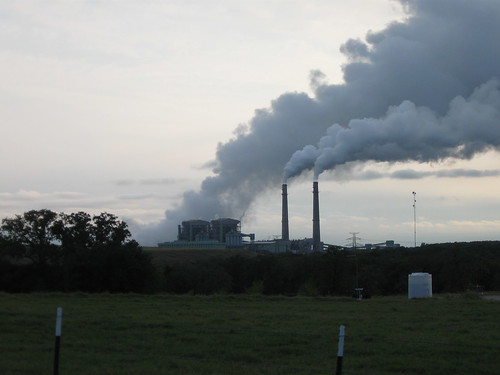The Environmental Defense Fund (EDF) has agreed to do what the state’s environmental agency should be doing by assuring that Tenaska’s commitment to sequester CO2 emissions can be enforced if this plant is built. While this deal may reduce some concerns about CO2, it doesn’t mean that this still isn’t a dirty old coal plant, and we will continue to work with the local opponents- the Multi- County Coalition-to oppose the permitting of the plant.
The devil is in the details and the metaphor is especially appropriate given the hellish consequences. Substantial questions still remain unanswered due to the confidential nature of the agreement. Is this deal dependent on cap and trade being passed? Does the deal really require that the coal plant will operate only if the carbon capture facility is also built and operated at least 85% of the time? Does the deal contemplate some other agreement for carbon capture without some federal cap and trade requirement for CO2? What happens if the off-takers don’t sequester the CO2? Can EDF take action against them if Tenaska is no longer a partner? What happens if the tertiary oilfields become saturated? What are the penalties? Do they have to shut down?
It is still unknown whether carbon capture and sequestration from coal is a viable part of the solution to climate change. Capturing and storing CO2 from one plant in Texas is one thing – capturing and storing the CO2 emissions from all the existing and proposed coal plants in the country is quite another.
The net output of this plant will significantly reduced by the energy consumed by carbon capture and dry cooling, making some the emissions per MWh of output far higher than other similar pulverized coal plants. Another big question is why is Texas getting stuck with a pulverized coal plant by Tenaska when they are building an IGCC plant in Illinois which far cleaner?
This is not the first deal of its kind in Texas. Public Citizen and the Sustainable Energy and Economic Development Coalition (SEED) reached an agreement with Nu Coastal Corp. to offset 100% of its CO2 from its Calhoun County plant. That plant has been sold to a new company which leads us to question if EDF can take action against the new permit holders if Tenaska is no longer a partner?
This deal doesn’t solve the questions about water availability, waste disposal and the damages done by coal mining.
In summary this still is a dirty old coal plant and we’ll oppose it.
###
By promoting cleaner energy, cleaner government, and cleaner air for all Texans, we hope to provide for a healthy place to live and prosper. We are Public Citizen Texas.
Read Full Post »
![]() ) says the climate & energy bill currently stalled in the Senate would reduce the federal deficit by about $19 billion over the next ten years. The CBO is responsible for providing Congress with nonpartisan analyses of economic and budget issues, and lawmakers rely on it for guidance. This is the second positive analysis of the bill by a government agency in a month. A similar report was issued by the Environmental Protection Agency in June.
) says the climate & energy bill currently stalled in the Senate would reduce the federal deficit by about $19 billion over the next ten years. The CBO is responsible for providing Congress with nonpartisan analyses of economic and budget issues, and lawmakers rely on it for guidance. This is the second positive analysis of the bill by a government agency in a month. A similar report was issued by the Environmental Protection Agency in June.

 A guest column by Ted Nace of
A guest column by Ted Nace of 


